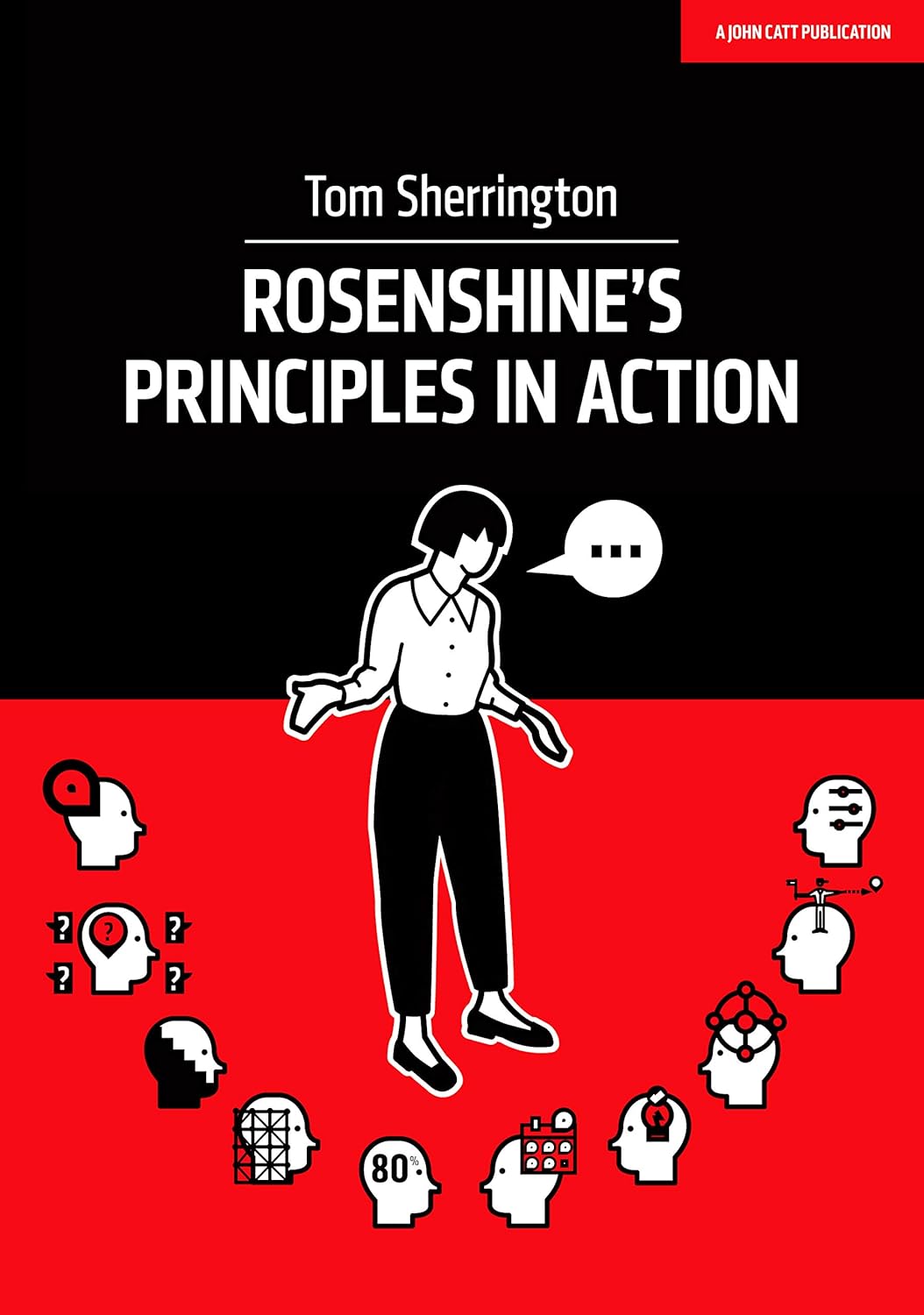Rosenshine's Principles in Action
- Brand: Unbranded

Description
Of course, a lot of the “hard to digest” elements are where the nuance sits. So did Rosenshine stray too far from the uncertainty and sow the seeds for false certainty?
When I thought about my teaching, I saw that I hadn’t really thought about my methods for a while, so I started mapping out a few lessons with Rosenshine’s work in mind. What we should be teaching new teachers isn’t only (or, even) Vygotsky, Piaget and Bloom, but something that makes more sense, is more relevant and something that is based on actual research. So, in a wide ranging conversation, Tom and I discussed the following things, and plenty more besides: Two years after the IAE paper was published, Rosenshine published a further, revised edition of the paper; “ Principles of Instruction: Research-based Strategies that Teachers Should Know“. Begin each lesson with a short review of previous learning: Daily review can strengthen previous learning and can lead to fluent recall’ (p. 13).
Sherrington added that there’s also a huge difference between what you know to be good sense and what you actually do (consider how often you floss your teeth, for example). This seems to be the most common response from teachers after reading Rosenshine’s paper for the first time. This is something Megan Dixon, acting headteacher of Sandbach Primary Academy and co-director of Aspirer Research School, told me she fears, too. So was he making compromises from the start? Paik stressed that though she and her co-editor may have shaped the article, the substance was still all Rosenshine. And rather than the format being key, what was important was the fact he was a researcher and former teacher. In her eyes, that made him the “real deal” when it came to bridging the academic/practitioner gap.
But is there any value in telling teachers what they already know? I heard from some teachers that one factor in Rosenshine’s appeal is that it’s simply nice to read a professor validating what you already do, especially if you’ve been worn down by shifting goalposts and high-stakes accountability. The free space in working memory helps us to perform other tasks, such as learning something new. Our working memory is limited; if we use much of it for recalling what we have learned, we have less available to engage in other mental activities important to learning. ‘The available space can be used’, Rosenshine writes, ‘for reflecting on new information and for problem solving’ (p. 19). For example, Rosenshine references a seminal article by Kirschner, Sweller and Clark, which is quite a polemic,” Bokhove explained. “There have been academic reactions to it, then another answer from the authors, but that nuanced discussion is not divulged in the article. Basically, 10,000 words are summarised in a few lines.”In actual fact, scaffolding is an effective way of doing this. Rather than handing learners the answers, scaffolding involves putting procedures and structures in place that guide learners through tasks, making new knowledge accessible and boosting their independence through practice. Even though these principles come from three different sources…….ideas from each of the sources overlap and add to each other. This overlap gives us faith that we are developing a valid and research-based understanding of the art of teaching.” and finally…. Objective: to get students to work effectively in pairs as a means of involving all students and generating more material to be explored in subsequent discussions.
- Fruugo ID: 258392218-563234582
- EAN: 764486781913
-
Sold by: Fruugo
